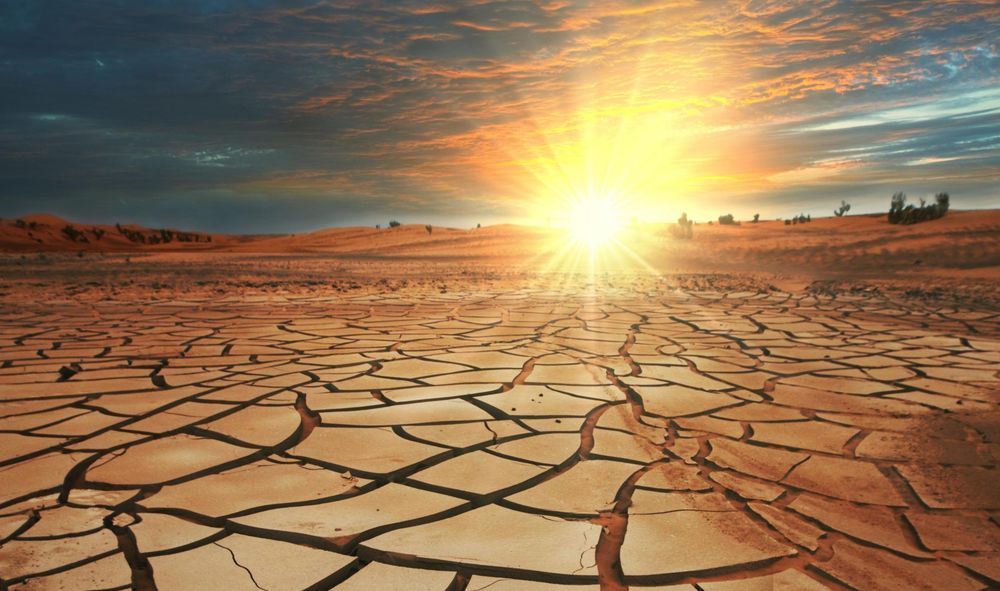This week:
🚀 The first piece of NASA’s Orion Spacecraft #Artemis III pressure vessel arrived in New Orleans
👩🏿🚀 Astronaut Jeanette Epps is assigned to The Boeing Company’s Starliner crewed mission
🌀 Hurricane Laura observed from space.
This week:
🚀 The first piece of NASA’s Orion Spacecraft #Artemis III pressure vessel arrived in New Orleans
👩🏿🚀 Astronaut Jeanette Epps is assigned to The Boeing Company’s Starliner crewed mission
🌀 Hurricane Laura observed from space.

Nearby supernova explosions shape the interstellar medium. Ejecta, containing fresh nucleosynthetic products, may traverse the solar system as a transient passage, or alternatively the solar system may traverse local clouds that may represent isolated remnants of supernova explosions. Such scenarios may modulate the galactic cosmic-ray flux intensity to which Earth is exposed. Varying conditions of the traversed interstellar medium could have impacts on climate and can be imprinted in the terrestrial geological record. Some radionuclides, such as 60 Fe, are not produced on Earth or within the solar system in significant quantities. Their existence in deep-sea sediments demonstrates recent production in close-by supernova explosions with a continued influx of 60 Fe until today.
Nuclides synthesized in massive stars are ejected into space via stellar winds and supernova explosions. The solar system (SS) moves through the interstellar medium and collects these nucleosynthesis products. One such product is 60 Fe, a radionuclide with a half-life of 2.6 My that is predominantly produced in massive stars and ejected in supernova explosions. Extraterrestrial 60 Fe has been found on Earth, suggesting close-by supernova explosions ∼2 to 3 and ∼6 Ma. Here, we report on the detection of a continuous interstellar 60 Fe influx on Earth over the past ∼33,000 y. This time period coincides with passage of our SS through such interstellar clouds, which have a significantly larger particle density compared to the local average interstellar medium embedding our SS for the past few million years. The interstellar 60 Fe was extracted from five deep-sea sediment samples and accelerator mass spectrometry was used for single-atom counting.

It’s extremely difficult to make a fair comparison of US and Chinese spend on technology like AI as funding and research in this area is diffuse. Although China announced ambitious plans to become the world leader in AI by 2030, America still outspends the country in military funding (which increasingly includes AI research), while US tech companies like Google and Microsoft remain world leaders in artificial intelligence.
The Trump administration will likely present today’s news as a counterbalance to its dismal reputation for supporting scientific research. For four years in a row, government budgets have proposed broad cuts for federal research, including work in pressing subjects like climate change. Only the fields of artificial intelligence and quantum computing, with their overt links to military prowess and global geopolitics, have seen increased investment.
“It is absolutely imperative the United States continues to lead the world in AI and quantum,” said US Chief Technology Officer Michael Kratsios ahead of today’s announcement, according to The Wall Street Journal. “The future of American economic prosperity and national security will be shaped by how we invest, research, develop and deploy these cutting edge technologies today.”

Tesla (NASDAQ: TSLA) has reached the $2,000 a share price point, but one investor says that its value could be looked at as “fairly low priced” in a year or two.
It’s hard to imagine that $2,000 for a share of an automaker’s stock could look like a bargain in the current economic climate. However, the CEO of AdvisorShares, Noah Hamman, thinks that TSLA’s price now could very well be looked at as a steal in a year or two.
“It’s possible a year or two from now we think that $2,000 a share was still fairly low priced, but who knows,” Hamman said to The First Trade, which is Yahoo Finance’s opening bell show.
Untangling the origins of Beelzebufo — the giant frog that lived alongside the dinosaurs — turns out to be one of the most bedeviling problems in the history of amphibians.
Thank you to these paleoartists for allowing us to use their wonderful illustrations:
Ceri Thomas: http://alphynix.tumblr.com/
Nobu Tamura: https://spinops.blogspot.com/
Julio Lacerda: https://252mya.com/gallery/julio-lacerda
This video features this paleogeographic map: Scotese, C.R., 2019. Plate Tectonics, Paleogeography, and Ice Ages, YouTube video: https://youtu.be/UevnAq1MTVA.
Here are the two of the papers we reference in this video:
Evans SE, Groenke JR, Jones MEH, Turner AH, Krause DW (2014) New Material of Beelzebufo, a Hyperossified Frog (Amphibia: Anura) from the Late Cretaceous of Madagascar. PLoS ONE 9: e87236. https://doi.org/10.1371/journal.pone.
Lappin, A.K., Wilcox, S.C., Moriarty, D.J. et al. Bite force in the horned frog (Ceratophrys cranwelli) with implications for extinct giant frogs. Sci Rep 7, 11963 (2017). https://doi.org/10.1038/s41598-017-11968-6
Produced in collaboration with PBS Digital Studios: http://youtube.com/pbsdigitalstudios

Researchers link end of Green Sahara with Southeast Asia megadrought.
Physical evidence found in caves in Laos helps tell a story about a connection between the end of the Green Sahara — when once heavily vegetated Northern Africa became a hyper-arid landscape — and a previously unknown megadrought that crippled Southeast Asia 4,000 to 5,000 years ago.
In a paper published today in Nature Communications, scientists at the University of California, Irvine, the University of Pennsylvania, William Paterson University of New Jersey and other international institutions explain how this major climate transformation led to a shift in human settlement patterns in Southeast Asia, which is now inhabited by more than 600 million people.

Soaring temperatures, intensified flood risks and heightened water stress will threaten 57 U.S. nuclear plants over the next 20 years, forcing operators to take additional resiliency measures, according to a new report.
“The consequences of climate change can affect every aspect of nuclear plant operations—from fuel handling and power and steam generation to maintenance, safety systems and waste processing,” said the analysis, which was published yesterday by Moody’s Investors Service.

A team of researchers working at the University of Maryland has uncovered the structure of the mysterious blue whirling flame. In their paper published in the journal Science Advances, the group describes using computer simulations to determine the structure of the unique type of flame.
Back in 2016, a team of researchers discovered what they described as a blue whirling flame while they were studying the properties of liquid fuel floating on water. They had added fuel to a tank full of water that was enclosed in a space that generated a vortex. They described a fire that looked at first like a tornado, but then shortly after, settled into what they dubbed a blue whirling flame. They noted at the time that its color suggested it likely was very efficient, burning the fuel without creating soot—a property that might be useful in cleaning up oil spills. Since then, others have looked at the unique type of flame, but no one had tried to understand its structure. In this new effort, the researchers took a closer look at the flame and found it was actually three types of flames that had merged into one.
To learn more about the nature of the blue whirling flame, the researchers created computer simulations using conditions known to generate them. They then slowly adjusted the parameters until they were able to generate the flame virtually. They discovered that the flame was actually the result of three known types of flames merging: those with an invisible outer flame, which happens when there is less fuel than oxygen in the mix—and two that had types of visible inner flames in which higher fuel ratios are more common.
NASA researchers have observed “superbolts” of lightning in Jupiter’s atmosphere, which form in clouds made of water and ammonia.

These guys have a great idea…but In true Zuckerberg style how does one steal and supercharge the idea. With food having salmonella, people need to grow more food at home. What technology can be created that uses technology to help people in urban settings grow their own food. This will help many in a post covid world, and the food should be safer, and also may promote nutrition. nnAmerican farmers also are having trouble, and would see the loss in demand. Global food production needs to increase. Japan offered to boost the continent of Africa’s rice production through cooperation. The same cooperation needs to be done with American farmers to boost Africa’s food production. Technology would be used to partner American farmers with African village cooperatives. The farmers and cooperatives would work together and share profits. This way the American farmer has revenue coming from two markets and continents. The same model can also be used in Mexico to prevent immigration. This way American farmers would also have revenue coming from Central and South America, however people who normally would be farm workers would be partners, and make more than they would having to cross borders dangerously, to make less money. This model can both reduce poverty, as well and insure food security. The capital for investment would have to come from many sources. Crowdfunding is one that can be good as the money can be paid back with profit. This way a crowd fund investment would gain better returns than interest rates. The next of course would be USAID. A project can be developed, in which USAID provides American farmers with start up capital. They manage the project pay back the loans, while sharing profits. Agreements can be developed for certain periods of time, After which the American farmer turns the project over to the cooperatives…just thinking out of the box it is a bit crazy. The farmers would be like a new Peace Corps thing. #VillageEconomics nnPortfolio company #ApolloAgriculture was recently featured in a Forbes article highlighting their machine-learning and automated-operations technology that helps small-scale farmers access everything they need to maximize their profitability. #impactinvesting #agtech
Between 2011 and 2014, engineer and Stanford grad Eli Pollak worked in agricultural technology in the U.S. for a company called the Climate Corporation. The enterprise where he was one of the early employees (which in 2013 was acquired by Monsanto for over $1 billion) worked on providing customized recommendations to increase production of large scale commercial farmers. What caught Pollak’s eye during his tenure at the company, however, was that some countries were planting way more seeds, but producing dramatically less agricultural products than the U.S.
This prompted Pollak to team up with Climate Corporation colleague Earl St Sauver, and Benjamin Ngenga (who himself grew up on a farm) to start Apollo Agriculture, a Kenyan ag-tech company which uses machine learning and automated operations technology to help small-scale farmers access everything they need to maximize their profitability.
In late May, Apollo Agriculture raised $6 million in a Series A round. The round was led by Anthemis Exponential Ventures, with participation from Leaps by Bayer, Flourish Ventures (a venture of The Omidyar Group), Sage Hill Capital, To Ventures Food, Breyer Labs, and existing investors Accion Venture Lab and Newid Capital, among others.